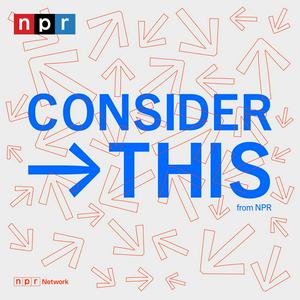Regime change, nuclear weapons, terrorism …Why is the U.S. at war with Iran?
In the days since the United States and Israel launched an attack on Iran, the Trump administration has given a wide range of reasons why the US is now at war. On Saturday, Trump seemed to indicate the U.S. and Israel were trying to clear the way for regime change. On Monday, Defense Secretary Pete Hegseth said the conflict in Iran was not about regime change. A couple of hours later in Trump's first public comments, not prerecorded on video, he listed four objectives. Regime change wasn't among them.
For sponsor-free episodes of Consider This, sign up for Consider This+ via Apple Podcasts or at plus.npr.org. Email us at
[email protected].
This episode was produced by Lauren Hodges and Karen Zamora, with audio engineering by Ted Mebane.It was edited by Andrew Sussman, Patrick Jarenwattananon and Courtney Dorning. Our executive producer is Sami Yenigun.
To manage podcast ad preferences, review the links below:
See pcm.adswizz.com for information about our collection and use of personal data for sponsorship and to manage your podcast sponsorship preferences.
Learn more about sponsor message choices: podcastchoices.com/adchoices
NPR Privacy Policy


